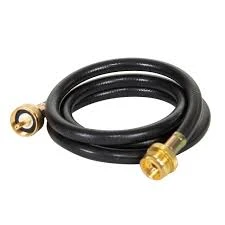335345435
Nov . 11, 2024 01:02 Back to list
OEM Fuel Hose Solutions for Gasoline Applications and Performance Improvement
Understanding OEM Hoses for Gasoline Importance, Types, and Applications
In the automotive industry, Original Equipment Manufacturer (OEM) hoses play a crucial role, especially when it comes to transporting gasoline. OEM hoses are specifically designed to meet the exact specifications and standards of the vehicle manufacturer, ensuring safe and efficient operation. This article aims to delve into the significance of OEM hoses for gasoline, the different types available, and their applications in modern vehicles.
Importance of OEM Hoses
OEM hoses are essential components in a vehicle's fuel system. They are responsible for transporting gasoline from the fuel tank to the engine, effectively facilitating the combustion process that powers the vehicle. The importance of using OEM hoses cannot be overstated, as they offer a number of advantages over aftermarket hoses
1. Quality and Reliability OEM hoses are manufactured to meet stringent quality control measures set by the vehicle manufacturer. They are designed to endure extreme temperatures, pressures, and exposure to various chemicals, ensuring they perform reliably under diverse operating conditions.
2. Fitment and Compatibility One of the key benefits of OEM hoses is that they provide exact fitment. Unlike aftermarket products, which may not align perfectly with the existing components, OEM hoses are tailored to fit seamlessly within the system, reducing the risk of leaks or failures.
3. Safety Fuel system components, including hoses, are critical for ensuring the safety of the vehicle. OEM hoses are designed with safety factors in mind, minimizing the possibility of fuel leaks that could potentially lead to fire hazards.
4. Warranty Protection Using OEM parts usually comes with the advantage of maintaining the vehicle's warranty. Many manufacturers stipulate that OEM components must be used for repairs to qualify for warranty coverage, protecting the owner's investment in the long run.
Types of OEM Hoses for Gasoline
There are several types of OEM hoses used specifically for gasoline applications, each designed for particular functions within the fuel system
1. Fuel Feed Hoses These hoses are responsible for delivering gasoline from the fuel tank to the engine. They must withstand high pressure to ensure the efficient flow of fuel.
oem hose for gasoline

2. Fuel Return Hoses In systems that use a return line, these hoses transport unused fuel back to the tank, helping to regulate fuel pressure and maintain efficiency in the fuel injection system.
3. Evaporative Emission Control Hoses These hoses play a pivotal role in reducing emissions by capturing fuel vapors from the fuel tank and directing them back into the engine for combustion.
4. Vent Hoses Vent hoses allow air to enter the fuel tank as fuel is consumed, preventing the formation of vacuum pressure that could impede fuel flow.
Applications of OEM Hoses in Modern Vehicles
OEM hoses for gasoline are integral to a vehicle's performance and efficiency. Here are some specific applications
1. Passenger Vehicles In everyday cars, OEM hoses ensure that fuel is delivered smoothly and efficiently, contributing to optimal engine performance and fuel economy.
2. Commercial Vehicles For trucks and vans that require high fuel capacity and constant use, OEM hoses are crucial for maintaining the durability and reliability of the fuel system under heavy loads.
3. Specialized Equipment Many types of machinery and equipment, including construction vehicles and agricultural machinery, rely on OEM hoses to function correctly, as improper fuel delivery can lead to decreased performance and increased maintenance costs.
4. Motorsport Applications In high-performance racing environments, the quality of fuel delivery can greatly impact outcomes. OEM hoses are often preferred for their reliability and consistency under extreme conditions.
Conclusion
In conclusion, OEM hoses for gasoline are indispensable components in both standard consumer vehicles and specialized machinery. Their unique design, quality assurance, and safety features make them a vital choice for anyone looking to ensure the longevity and performance of their fuel system. As automotive technology continues to evolve, the importance of using high-quality OEM components will remain significant, ensuring that vehicles operate safely and efficiently.
-
High-Precision Hydraulic Hose Crimping Machine for Fast, Reliable Fittings
NewsJul.24,2025
-
High-Quality Distribution PTFE Hose for Industrial Flexibility
NewsJul.23,2025
-
Durable Pressure Washer Rubber Hose for Hot Water & High Flexibility
NewsJul.22,2025
-
Twin Hydraulic Hose for Efficient Fluid Transfer | Durable & Flexible
NewsJul.22,2025
-
Twin Hydraulic Hose | High Pressure & Durable
NewsJul.21,2025
-
Discount Hydraulic Hose Factories | Top Quality & Discounts
NewsJul.20,2025



